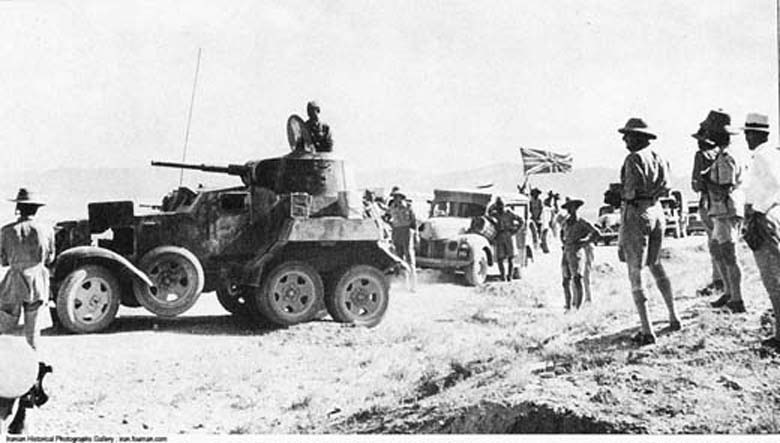Battle of the Atlantic
- U-98 sinks the British steamer Jedmoor (4392t) of Convoy SC-42 northwest of St Kilda with the loss of 31 of her crew. 3 survivors are picked up by the Norwegian steamer Knoll and 2 more by the British steamer Campus.
- The Swedish steamer Yarrawonga (4900t) is sunk by British bombing at Hamburg.
Eastern Front
As the siege of Leningrad continues, Panzer divisions begin the transfer from Army Group North to Army Group Center. Hitler declares that the city must vanish from the face of the earth and is to be 'bombarded to pieces' by artillery and the Luftwaffe.
In the single greatest capitulation of the war, more than half a million Russians in the Kiev area surrender to the Germans. This figure is disputed. The Germans put the figure at 665,000 while the Russians admit to 527,000 men being captured and wounded during the fighting of the previous week. By Moscow's account a total of 677,085 Red Army troops were committed along the entire southwest front. However, large numbers of the 'People's Army', and inferior militia-type force had been pressed into service and were involved in the Kiev fighting, and together with armed civilians lend credence to the higher German figure.
NORTHERN SECTORBefore the 8th Army can launch its delayed attack, the XLI Panzer And XXXVIII Corps strike. Advancing quickly against disorganized resistance, the Germans reach the coast and finally isolate the 8th in the Oranienbaum pocket.
The 1st Panzer and SS Polizei Divisions enter Pushkin and Aleksandrovka. Fighting at Slutsk and Kolpino enable the XXVIII Corps to penetrate the Soviet defenses. However, despite these furious battles, the 42nd Army continues to receive a trickle of reinforcements. Ferocious fighting rages at Uritsk.
CENTRAL SECTORThe Germans begin to pull the 2nd Army out of its positions in order to re-deploy on the Moscow axis. Guderian's 2nd Panzer Group is unable to disengage as it is involved in heavy fighting around the Kiev pocket, Priluki falling to the XLVII Panzer Corps.
SOUTHERN SECTORSoviet forces in the Kiev pocket attempt to break out. However, the armies are fighting in isolation, the 26th Army around Orzhitsa, 37th Army in two groups to the southeast of Kiev and the 5th and 21st Armies around Piryatin.
[France, Policy
Syria is proclaimed independent by the Free French government.
[Germany, Policy
Gen Keitel responds to growing Russian partisan warfare by ordering the execution of as many as 100 hostages for every German soldier killed by the civilian irregulars.
[Iran
The Allies have decided to occupy Teheran because the Shah, Reza Khan, has not done enough, in their view, to expel all Axis nationals from the country. The Shah abdicates in favor of the Crown Prince, Mohammad Reza Pahlavi. Reza Khan is exiled to the island of Mauritius and then South Africa where he dies in July 1944 at the age of 66. The British and Soviet forces arrive in the capital on September 17.
British and Soviet Occupation of Iran |
 |
Mediterranean
The Italian submarine Smeraldo is lost to unknown causes in the central Mediterranean.
[Occupied France
Ten 'hostages', mainly Jewish (including a 19-year old boy), are executed in reprisal for anti-German attacks.
[United States, Policy
The US Marine Dept announces that the Atlantic fleet will protect convoys of material to those countries affected by the Lend-Lease Act up to the 26° W meridian.
[Yugoslavia
Hitler issues a directive to Field Marshal Wilhelm List, Commander-in-Chief Southeast, ordering him to suppress a partisan revolt in Serbia. List will appoint Gen Boehme to this task. Boehme succeeded in putting down the revolt in wester Serbia and inflicting more than 2,000 casualties on the partisans by mid-December. His forces included the 113th, 125th and 342nd Infantry Divs that arrived from Germany late in November, and the 704th and 714th Infantry Divs. Unfortunately for the Germans, and a portent of things to come, large numbers of partisans fled into Croatia where a new center of open revolt was formed.
[